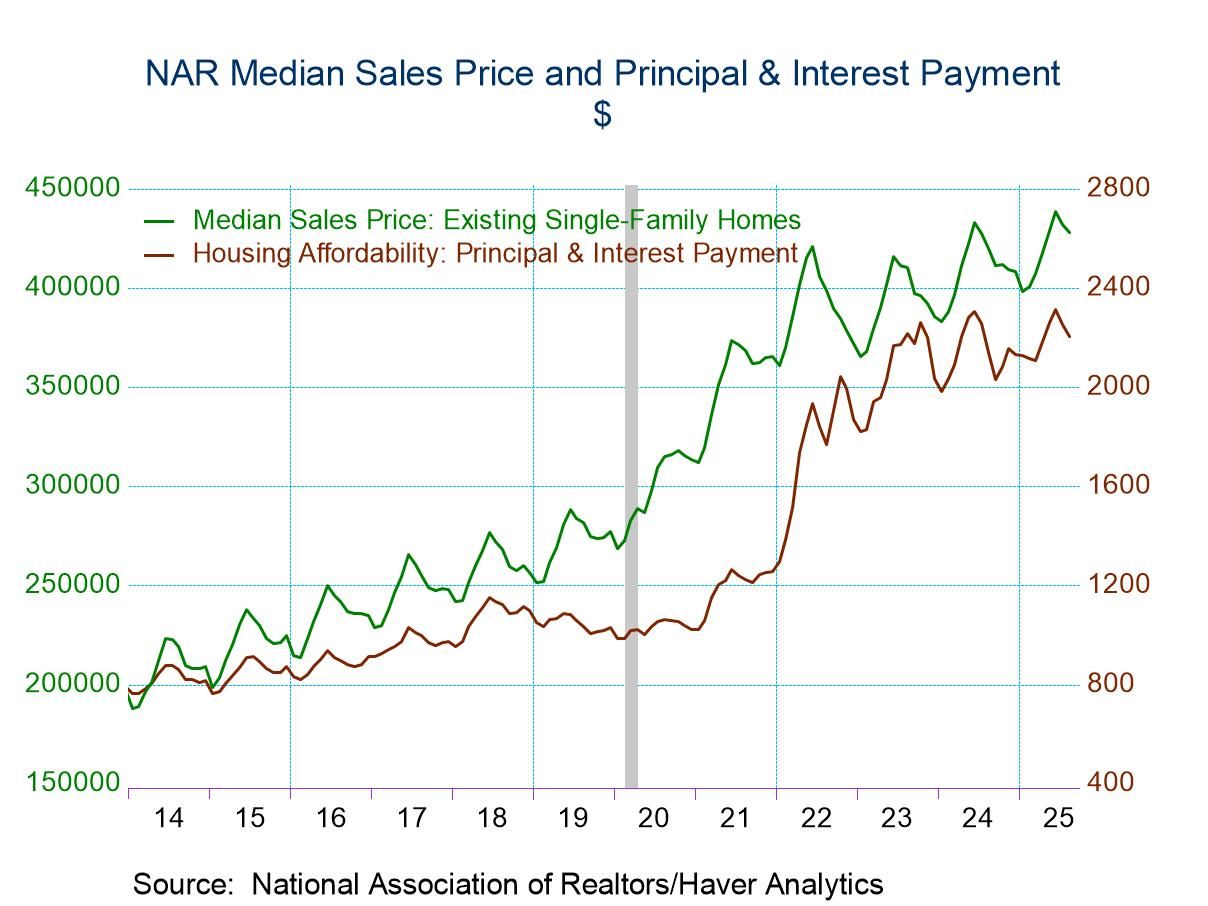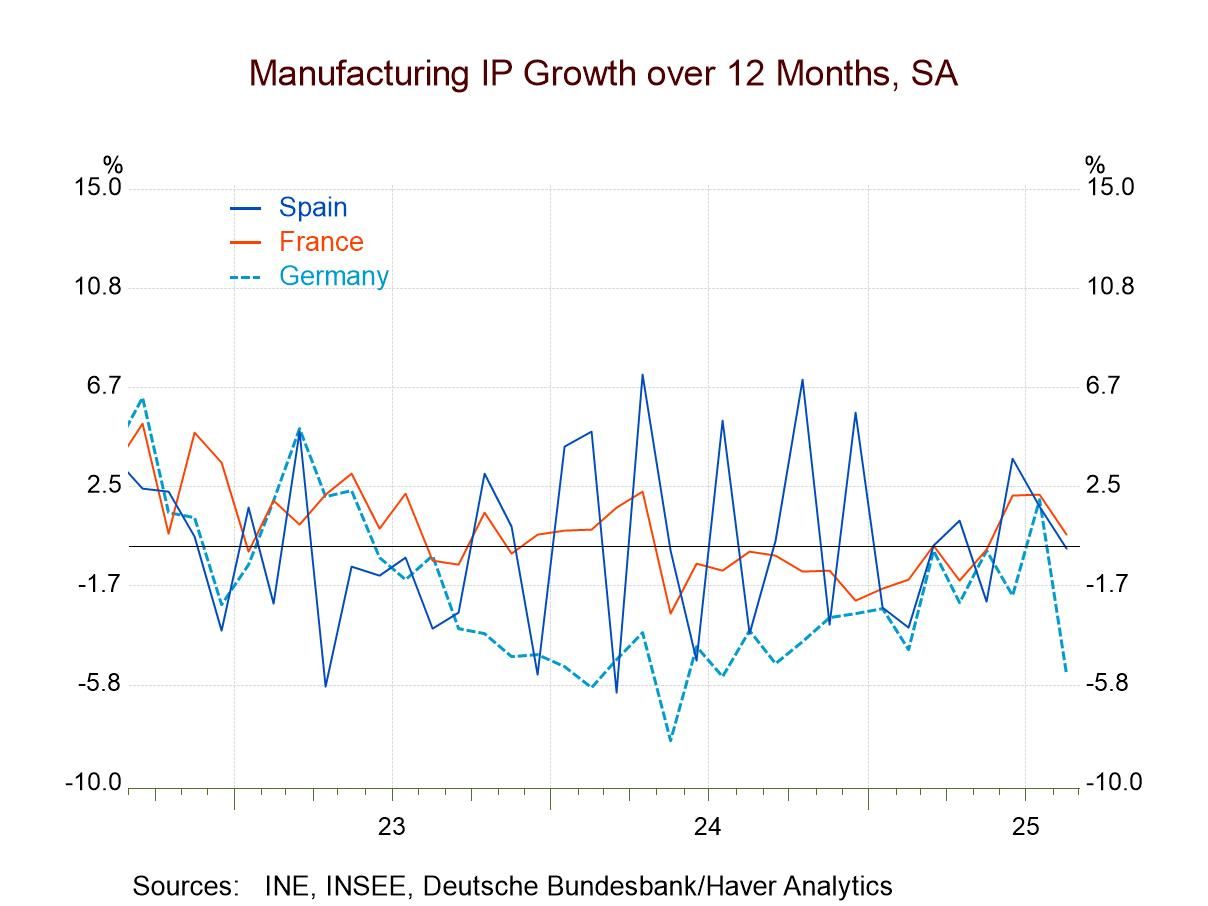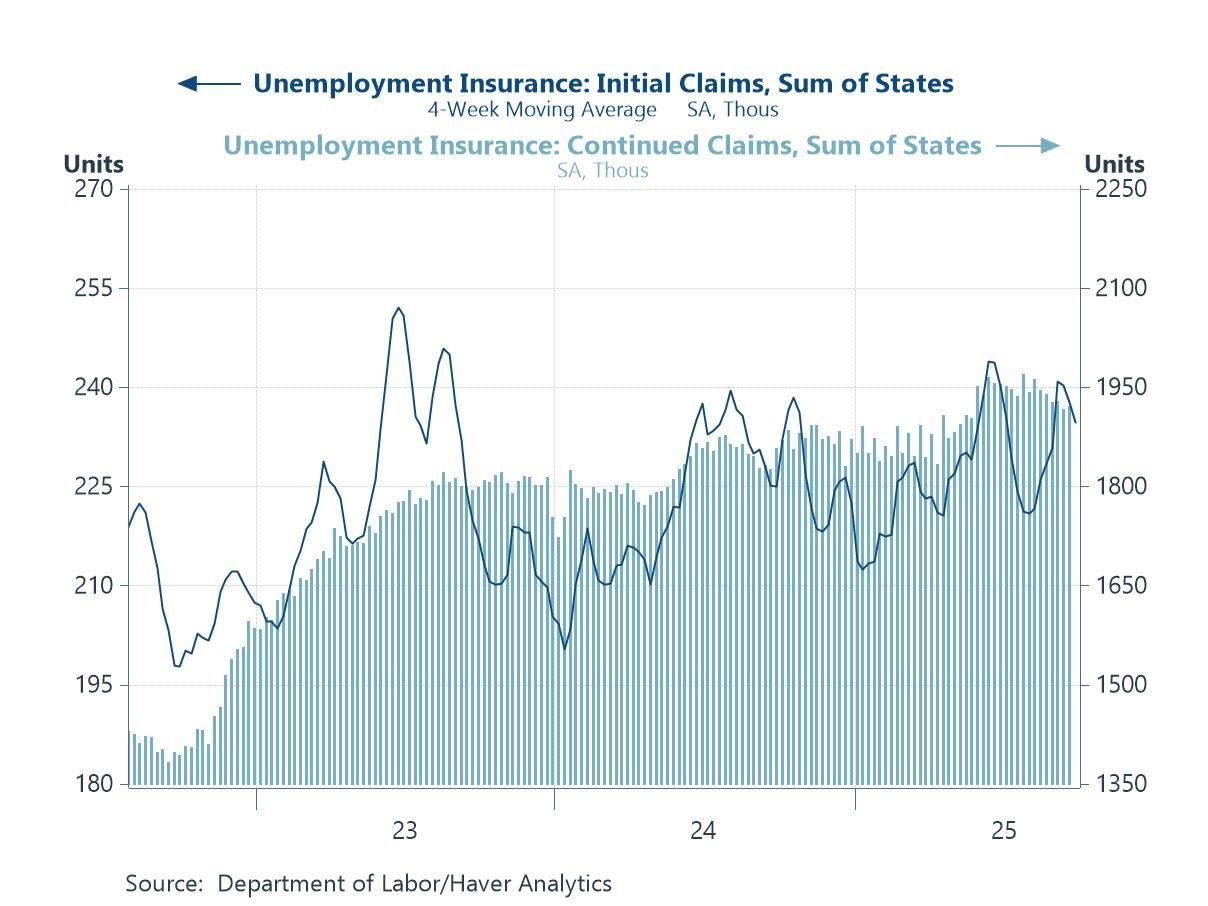 Global| Jul 21 2004
Global| Jul 21 2004Consumer's 1Q Debt Service Burden Lower, But ...
by:Tom Moeller
|in:Economy in Brief
Summary
The debt service ratio for the household sector fell again in 1Q04 to 12.98%, the lowest level since late 2001 as estimated the US Federal Reserve Bank. The household debt service ratio estimates the ratio of debt payments to [...]
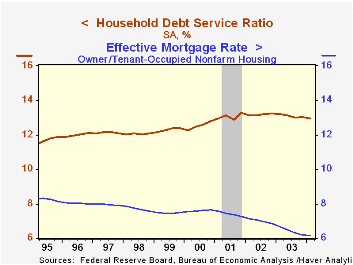
The debt service ratio for the household sector fell again in 1Q04 to 12.98%, the lowest level since late 2001 as estimated the US Federal Reserve Bank.
The household debt service ratio estimates the ratio of debt payments to disposable personal income. Debt payments consist of the estimated required payments on outstanding mortgage and consumer debt.
A companion financial obligations ratio also fell to 18.09%, its lowest since late 2001. This ratio adds automobile lease payments, rental payments on tenant-occupied property, homeowners' insurance, and property tax payments to the debt service ratio.
The decline in the debt-servicing burden occurred despite a very recent pickup in the amount of mortgage interest paid, though, growth of not quite 4% lagged disposable income growth of over 6%.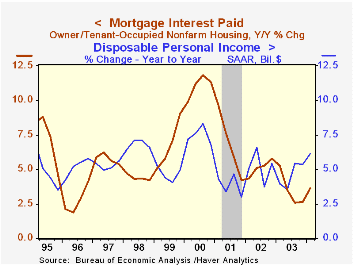
Lower interest rates through 1Q helped restrain the growth in interest paid. In 2Q, however, the average interest rate on a 30-Year mortgage rose roughly 50 basis points versus 1Q.
The financial obligations data are derived from the Fed's Survey of Consumer Finances which is discussed in this paper.
Yesterday's testimony by Chairman Greenspan before the Senate Banking Committee can be found here.
| Debt Service Ratio | 1Q04 | 4Q03 | 2003 | 2002 | 2001 |
|---|---|---|---|---|---|
| Household | 12.98% | 13.06% | 13.06% | 13.23% | 13.27% |
by Tom Moeller July 21, 2004
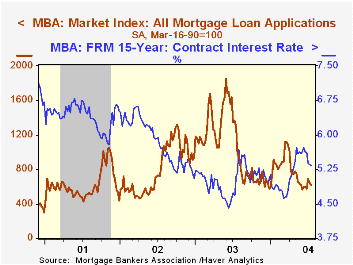
The index of mortgage applications compiled by the Mortgage Bankers Association fell sharply again last week. Applications fell 4.0% on the heels of the 6.3% drop the prior week.
Purchase applications led the decline, down 6.1% (-0.5% y/y) following the 6.4% drop the prior week. Because of a large gain the first week, July purchase applications so far are 6.1% higher than in June.
During the last ten years there has been a 63% correlation between the y/y change in purchase applications and the change in new plus existing home sales.
Applications to refinance mortgages fell a scant 0.7% after the 6.1% drop the prior week (-73.3% y/y). Refi's in July are 19.2% ahead of June.
The effective interest rate on a conventional 30-Year mortgage was stable at 6.22% versus 6.52% in June. The effective rate on a 15-year mortgage also was about stable at 5.68%, down from 5.98% averaged in June.
The Mortgage Bankers Association surveys between 20 to 35 of the top lenders in the U.S. housing industry to derive its refinance, purchase and market indexes. The weekly survey accounts for more than 40% of all applications processed each week by mortgage lenders. Visit the Mortgage Bankers Association site here.
| MBA Mortgage Applications (3/16/90=100) | 07/16/04 | 07/09/04 | Y/Y | 2003 | 2002 | 2001 |
|---|---|---|---|---|---|---|
| Total Market Index | 617.9 | 643.9 | -51.9% | 1,067.9 | 799.7 | 625.6 |
| Purchase | 440.3 | 468.8 | -0.5% | 395.1 | 354.7 | 304.9 |
| Refinancing | 1,651.1 | 1,662.4 | -73.3% | 4,981.8 | 3,388.0 | 2,491.0 |
Tom Moeller
AuthorMore in Author Profile »Prior to joining Haver Analytics in 2000, Mr. Moeller worked as the Economist at Chancellor Capital Management from 1985 to 1999. There, he developed comprehensive economic forecasts and interpreted economic data for equity and fixed income portfolio managers. Also at Chancellor, Mr. Moeller worked as an equity analyst and was responsible for researching and rating companies in the economically sensitive automobile and housing industries for investment in Chancellor’s equity portfolio. Prior to joining Chancellor, Mr. Moeller was an Economist at Citibank from 1979 to 1984. He also analyzed pricing behavior in the metals industry for the Council on Wage and Price Stability in Washington, D.C. In 1999, Mr. Moeller received the award for most accurate forecast from the Forecasters' Club of New York. From 1990 to 1992 he was President of the New York Association for Business Economists. Mr. Moeller earned an M.B.A. in Finance from Fordham University, where he graduated in 1987. He holds a Bachelor of Arts in Economics from George Washington University.




